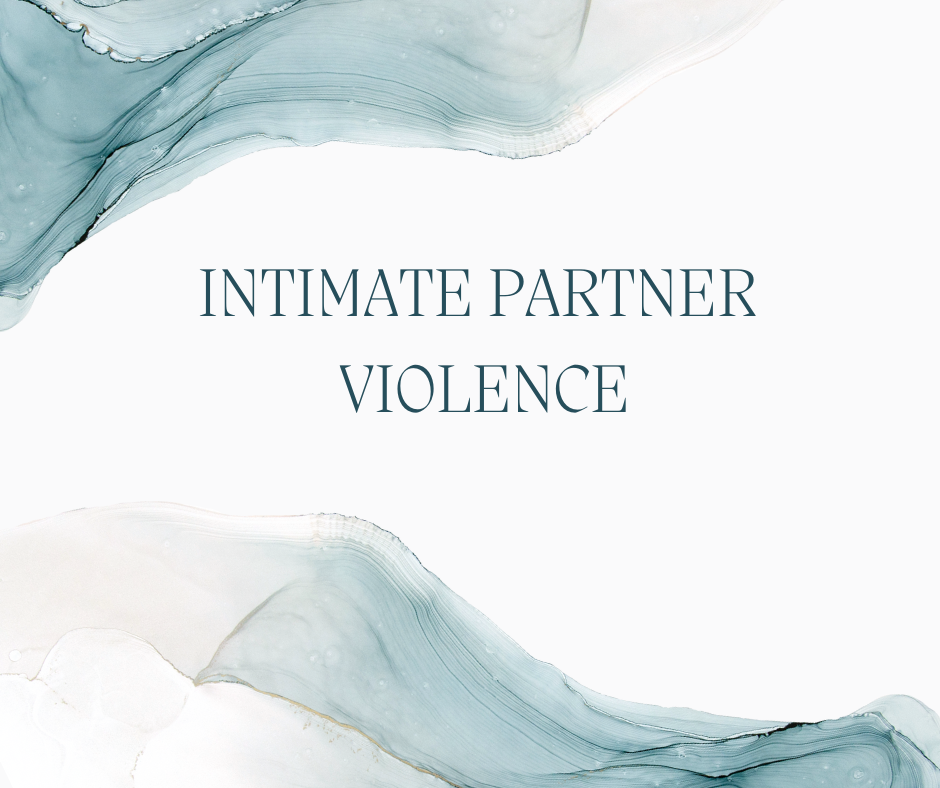Riya Shah

In America alone, over 10 million women and men can say that they have been abused by an intimate partner (NCADV). These 10 million people are victims of intimate partner violence.
Domestic violence is a topic that is considered taboo and is not spoken about much to avoid making people feel uncomfortable.
Take a moment to consider just how uncomfortable victims feel throughout their daily lives. The conversation surrounding domestic violence needs to become more active and more impactful, especially considering most teenagers and adults struggle to properly define and identify domestic violence.
*This article refers to the term “intimate partner violence (IPV)” as physical aggression between two people in a romantic relationship: a couple that lives together, is married, casually dating, etc.*
WHAT IS INTIMATE PARTNER VIOLENCE?
The term intimate partner violence, or IPV, manages to confuse most people. Although the term seems mostly self-explanatory, many people still do not truly know what intimate partner violence actually entails.
The official definition of domestic violence is “the repetitive form of abuse/violence that can range from terrorizing, intimidating, manipulating, humiliating, harming, injuring, wounding, assaulting” (United Nations). If this behavior is between a married pair, dating partners who do not live together, or a live-in couple, it can classify as intimate partner violence. This may seem like meaningless words on a screen without any true meaning, but there are roughly 10 million people in this country alone, who fear for their safety every day in their homes, and live in constant trepidation, wondering when will the next time be that they cede to have a voice, are punched, slapped, or mentally or physically attacked. This is a dreadful and terrifying reality for too many people, and more awareness needs to be brought to this unacceptable issue.
WHO/HOW DOES INTIMATE PARTNER VIOLENCE AFFECT?
The most disturbing fact about domestic violence is that it is universal. It could happen to absolutely anybody. Intimate partner violence is a serious issue all over the world, not just in the United States; it happens to all religions and races. People of all ages, genders, or sexual orientations can potentially fall victim to this heinous problem, and the plague of domestic violence also does not discriminate between socioeconomic classes or education levels. Intimate partner domestic abuse takes so much out of those affected, but additionally, the effects can also trickle down to the children, family, friends, and any other onlookers.
According to the Joyful Heart Foundation, the effects of domestic violence on the abused are as follows:
- Depression
- Development of PTSD ( post-traumatic stress disorder)
- Low self-esteem
- Substance abuse
- Physical bruises
- Muscle tension
- Menstrual/fertility issues
- Hopelessness
According to Elizabeth Plumptree, a renowned psychologist, the effects of domestic violence on any witnesses are as follows:
- Increased anxiety
- Development of PTSD ( post-traumatic stress disorder)
- Aggressive behavior
- Long term depression
- Drastic health problems
HOW DOES INTIMATE PARTNER VIOLENCE HAPPEN?
Intimate partner domestic abuse usually happens when one member of a relationship is attempting to gain and maintain control over the other person using violent means. A severe power imbalance is the main harbinger of intimate partner violence. This abuse can happen in a multitude of different ways, each scarier than the next. Safe Haven Shelter and Resource Center reports that violence between intimate partners most usually happens through physical abuse, emotional/mental abuse, and sexual abuse. Physical abuse can take the form of punching, hitting, slapping, attacking, and many more grim actions. Mental/emotional abuse can include isolating the other partner from everything and everyone else, constant humiliation, gas-lighting, degrading, etc. Sexual abuse includes sexual coercion, sexual pressure, and sexual manipulation.
WHERE DOES INTIMATE PARTNER VIOLENCE HAPPEN?
Intimate partner violence has no borders and can happen in every single country, state, city, and town in the world. In Middle Eastern and North African countries, around 45% of relationships have included some form of domestic abuse. South Asian and East Asian countries report a rate of 38% and 28% respectively. Europeans reported that 20% had experienced intimate partner violence at one point in their lives according to The Gender Gap Institute. America is definitely not alone in this prevalent problem, and many countries have a dreadful amount of domestic violence cases yearly.
More specifically, intimate partner violence can happen at any place. Domestic violence knows no boundaries not national nor cultural and it can happen anywhere; no-one can truly know what is happening in the house right next to them. Most commonly, it occurs inside private homes. However, it can happen even in extremely public places such as hospitals, workplaces, and shopping centers.
WHEN DOES INTIMATE PARTNER VIOLENCE HAPPEN?
Intimate partner violence never rests. Victims live their entire days filled with dread, worry, and anxiety. There is no telling or predicting when an abuser would strike; abuse at any time is plausible. This leads to most victims’ entire lives being taken up by domestic violence because they rarely have any time to relax and let their guard down. Imagine a life where at any possible minute facing ferocious torture would be expected and normal.
WHY IS IT IMPORTANT TO RAISE AWARENESS?
Although this may have been a troubling and uneasy read, the more that conversation about domestic violence is stirred up, the more awareness is built. Only with more awareness can steps be taken to identify this behavior, to understand the severity of it, and to take action against it. Raising awareness could be helping much more people than what is realized. It can help people who may be friends, family members, teachers, coworkers, or neighbors, that are silent victims of domestic violence.
CONCLUSION
Intimate partner violence has a colossal impact on the general health and well-being of so many people, which is why the population needs to be more knowledgeable about it. Abuse that is as common as intimate partner violence should be more well known, and most importantly, more well-understood. However, it is better to be confused about the details and facts surrounding intimate partner violence, rather than to be ignorant! “Confusion is ignorance leaving the brain”- Kate Nowak
Resources
1-800-799-SAFE (7233) – National Domestic Violence Hotline
Nobody ever deserves to be abused.
Family and Child Abuse Prevention Center: https://www.fcapc.org/
The Cocoon DV Shelter: https://thecocoon.org/
YWCA Shelter: https://www.ywcanwo.org/what-were-doing/domestic-violence/
Other stories on eSomethin:
- Photo gallery: PHS art club hosts annual art show on May 9
- The Artsy Apparel is a new local business founded by a PHS grad
- Muslim student association hosts a second multicultural food day this school year featuring all heritage clubs
- Splash! PHS seniors play assassin game to finish the year with a bang
- eSomethin’s Ari Collins wins Munger Award




